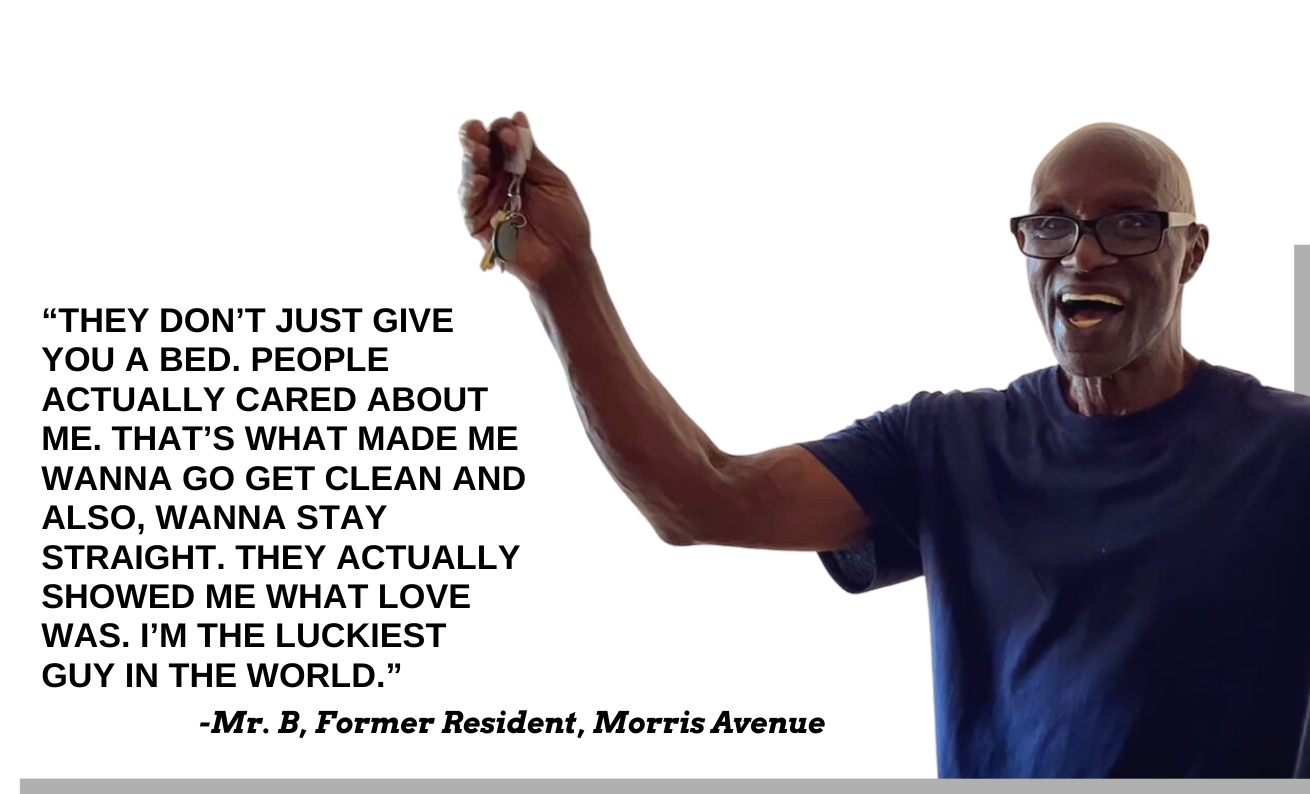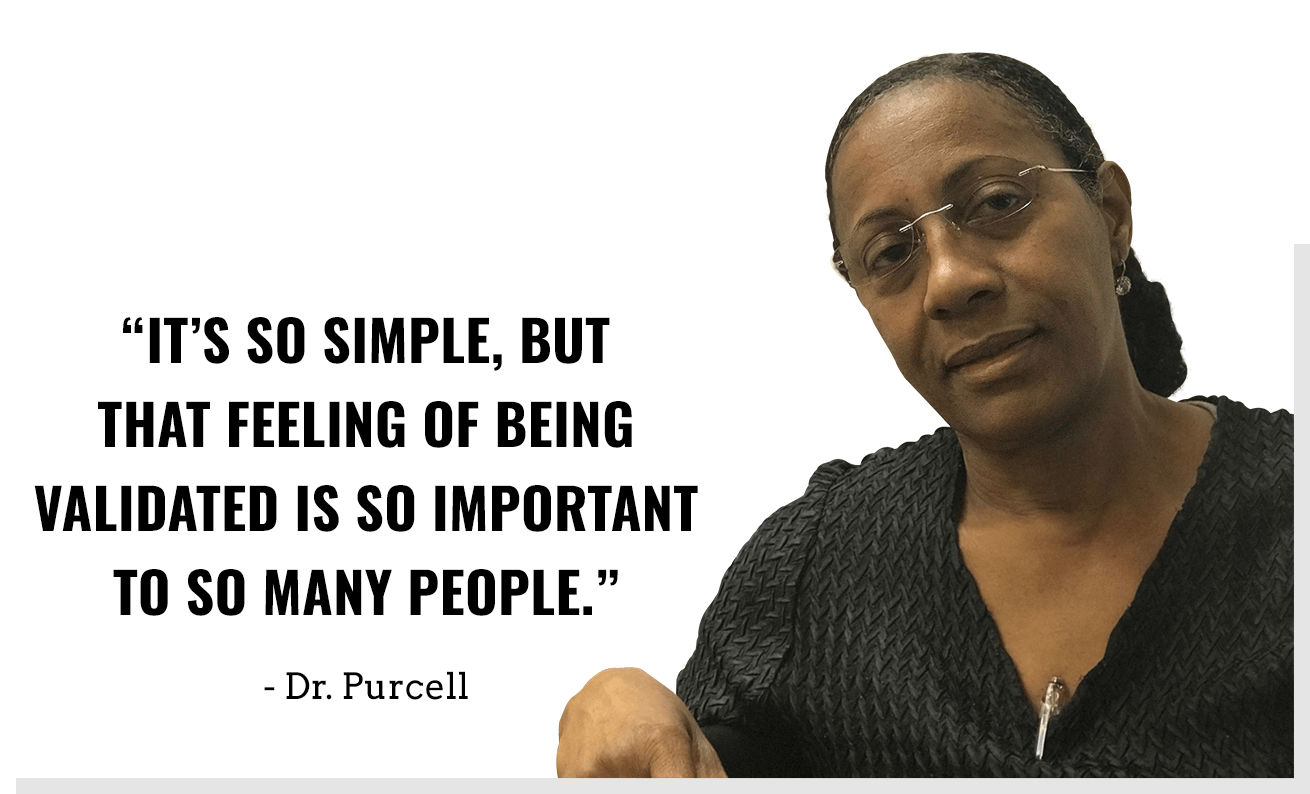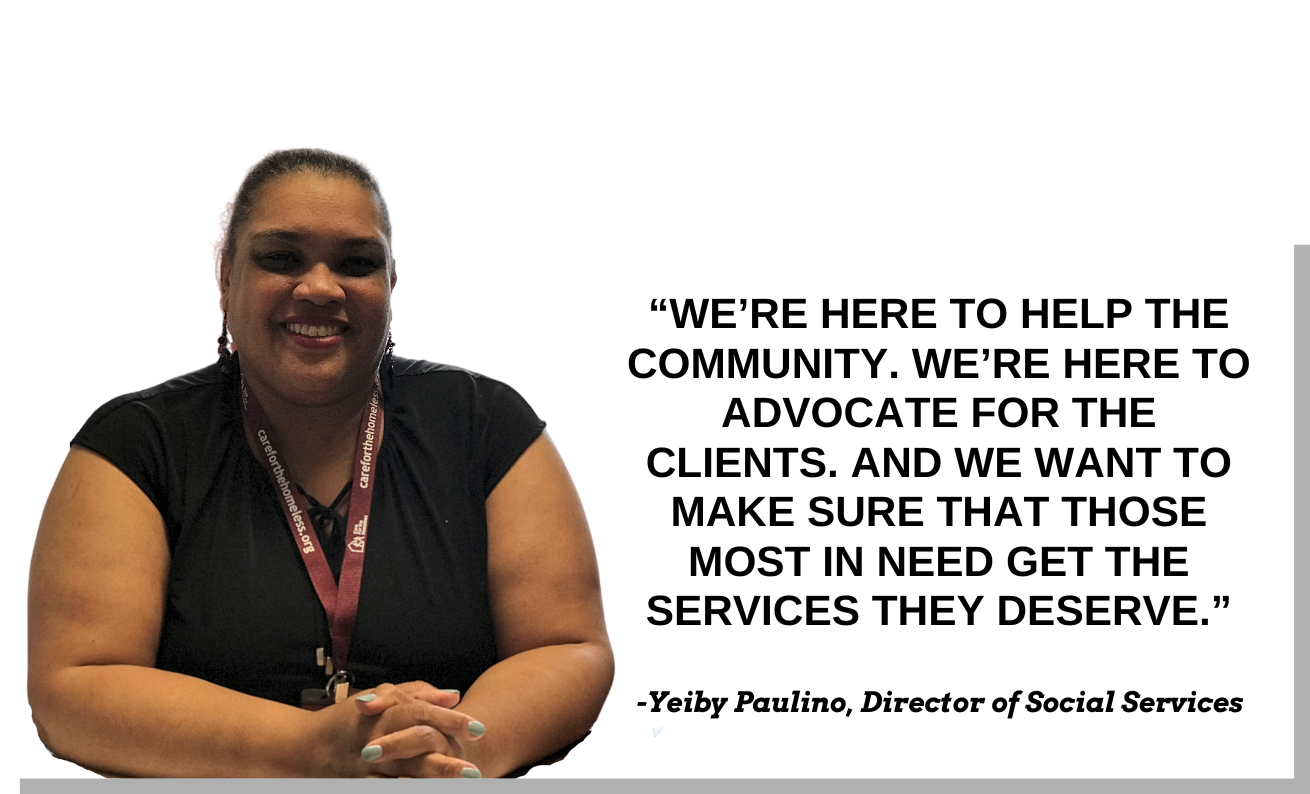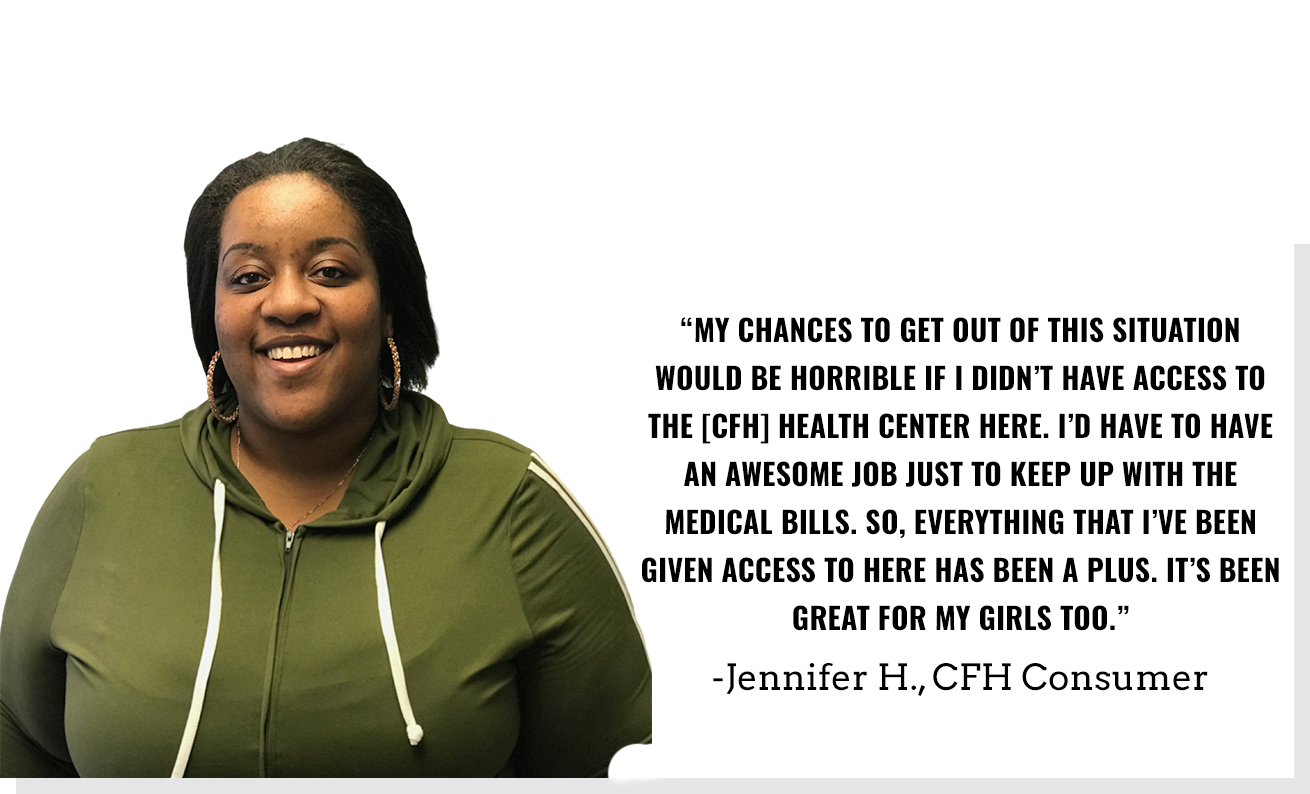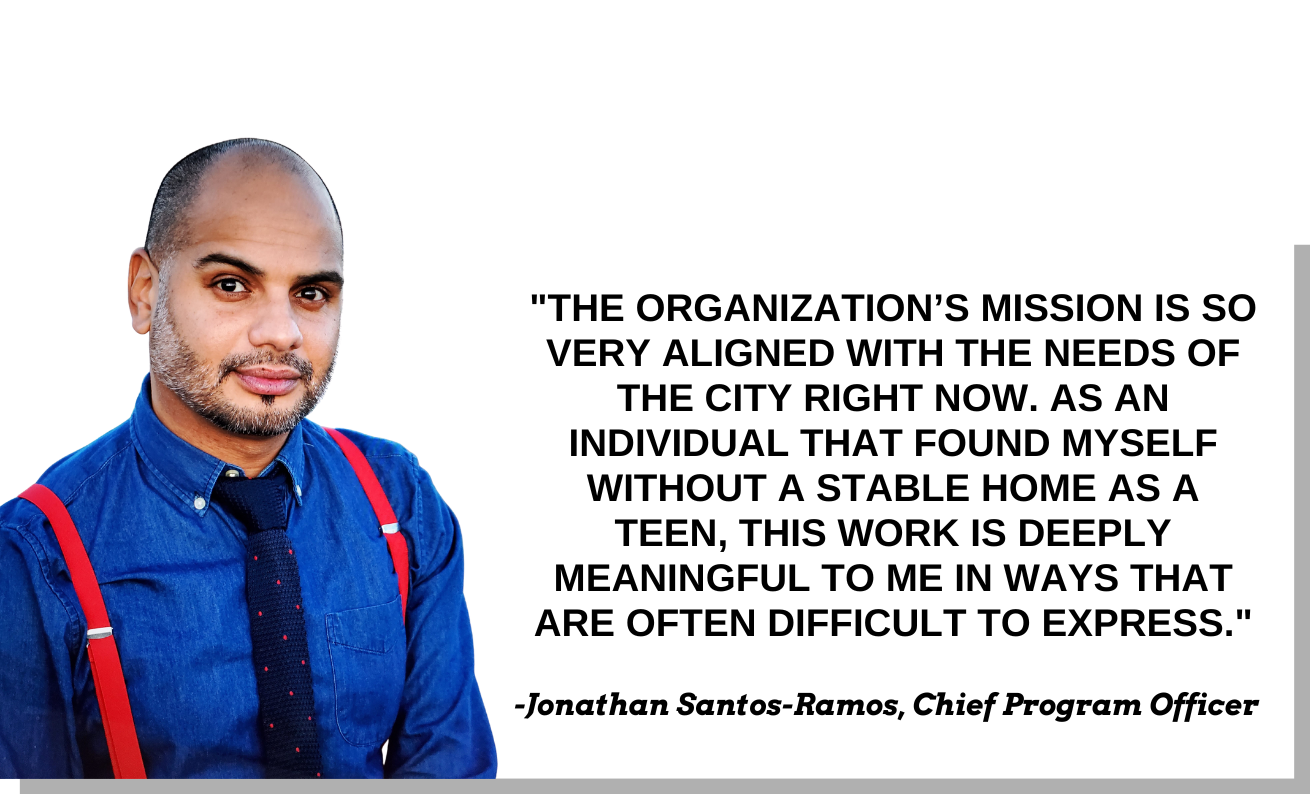“Homelessness is a policy choice, and there are solutions”
In this episode of “Meet CFH,” we sat down with Chelsea Rose, our Policy & Advocacy Manager.
This interview has been edited for length and clarity.
I’m Chelsea Rose. I am the Policy and Advocacy Manager at Care For the Homeless, and I’ve been here since last July of 2024.
What is your role?
My role is a part of the two-person Policy and Advocacy department, and we handle all of the advocacy work at the city, state and federal level, which involves making sure that homelessness, and healthcare and homelessness, is at the forefront of the minds of all of our elected officials that represent us, to make sure they’re prioritizing the services and the funding that makes our work possible.
What did you do before coming to CFH?
I worked in other policy and advocacy positions at different organizations, but I was very focused on trying to find a role that prioritized the voice of consumers and their advocacy work. I felt like any organization that claims to be advocating for a specific population should be led and directed by them. So something that really appealed to me when I was interviewing for this role and when I started working was our Consumer Advisory Board, and how closely my position gets to work with them, and how much they are really the core of this organization and specifically the policy and advocacy department.
Why this work specifically?
I’ve always known I wanted to help people and be a part of making this world work better for everyone. I had worked in many different government agencies and different elected offices, and I just felt that policy and advocacy work allowed me to be part of the voices that were demanding change, and making sure that people who didn’t have the loudest voices were heard in the rooms where decisions were being made.
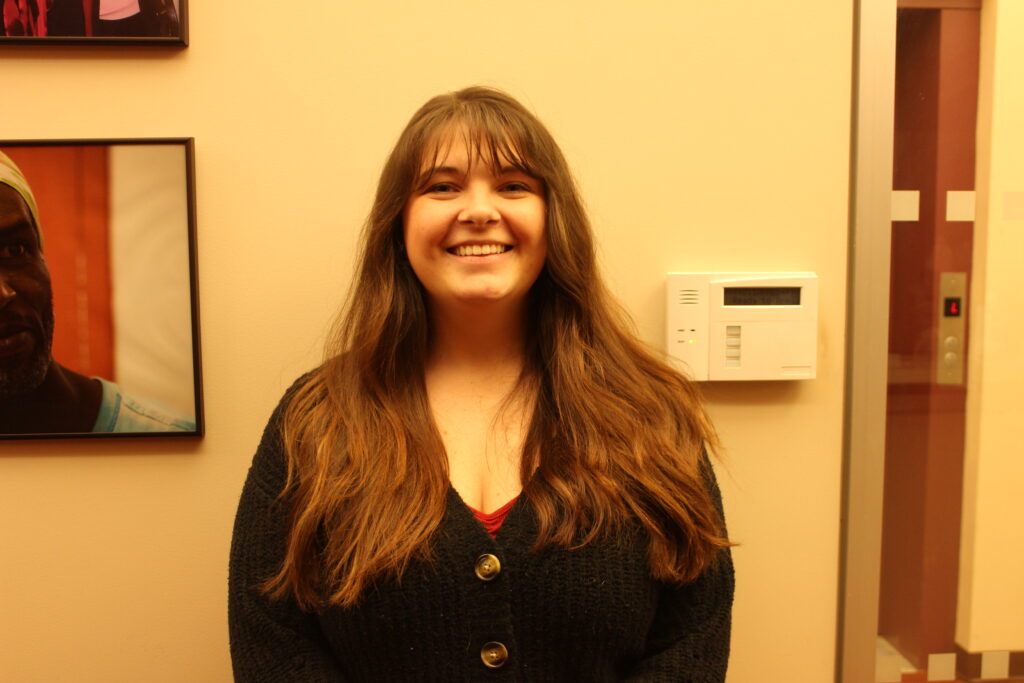
And why do you think CFH’s work is important?
I think CFH’s work is important because it’s really focusing, not only on homelessness and housing, of course, but healthcare is such a critical component to that, and what makes CFH special is that we are directly serving communities experiencing homelessness. And with that, we are inviting them into spaces to give us feedback on our programs and to lead our advocacy work.
So when I meet with elected officials, it’s not me telling elected officials why this is such an important policy and program. I’m there, I’m directing those conversations. But at the core of it, the stars of those shows are our consumers who get to share why our Community Health Centers changed their lives and why the people at this organization have really helped them regain stability and end their cycle of homelessness.
What are some of the issues that you are prioritizing?
They kind of fall into 3 buckets. We focus on better comprehensive medical and behavioral healthcare, along with stable housing, and then equity and social justice.
What have you been doing recently in D.C.?
So we were in DC earlier in February. There have been, in the new administration, lots of talks about cutting Medicaid and other Community Health Center programs that our organization and the communities we serve rely on.
What our goal there has been, is putting a face on Community Health Centers and showing them that Community Health Centers are a cost-saving measure. They do serve communities in a cost-effective way that ultimately saves money in the long run. And we do this by, you know, showing them the facts and statistics that are very apparent in this body of research around Community Health Centers, but also by bringing along our consumers.
So in February, I brought Cynthia English, who was able to share how, when she was experiencing street homelessness, how important healthcare was to her and the barriers to her accessing it, extended her experience of homelessness for so many years. Now, her voice is the one that elected officials remember when we walk out the door. Cynthia can explain to us why these Community Health Centers, and the resources, and the way that they approach patients, and folks who are experiencing homelessness, why that is the solution.
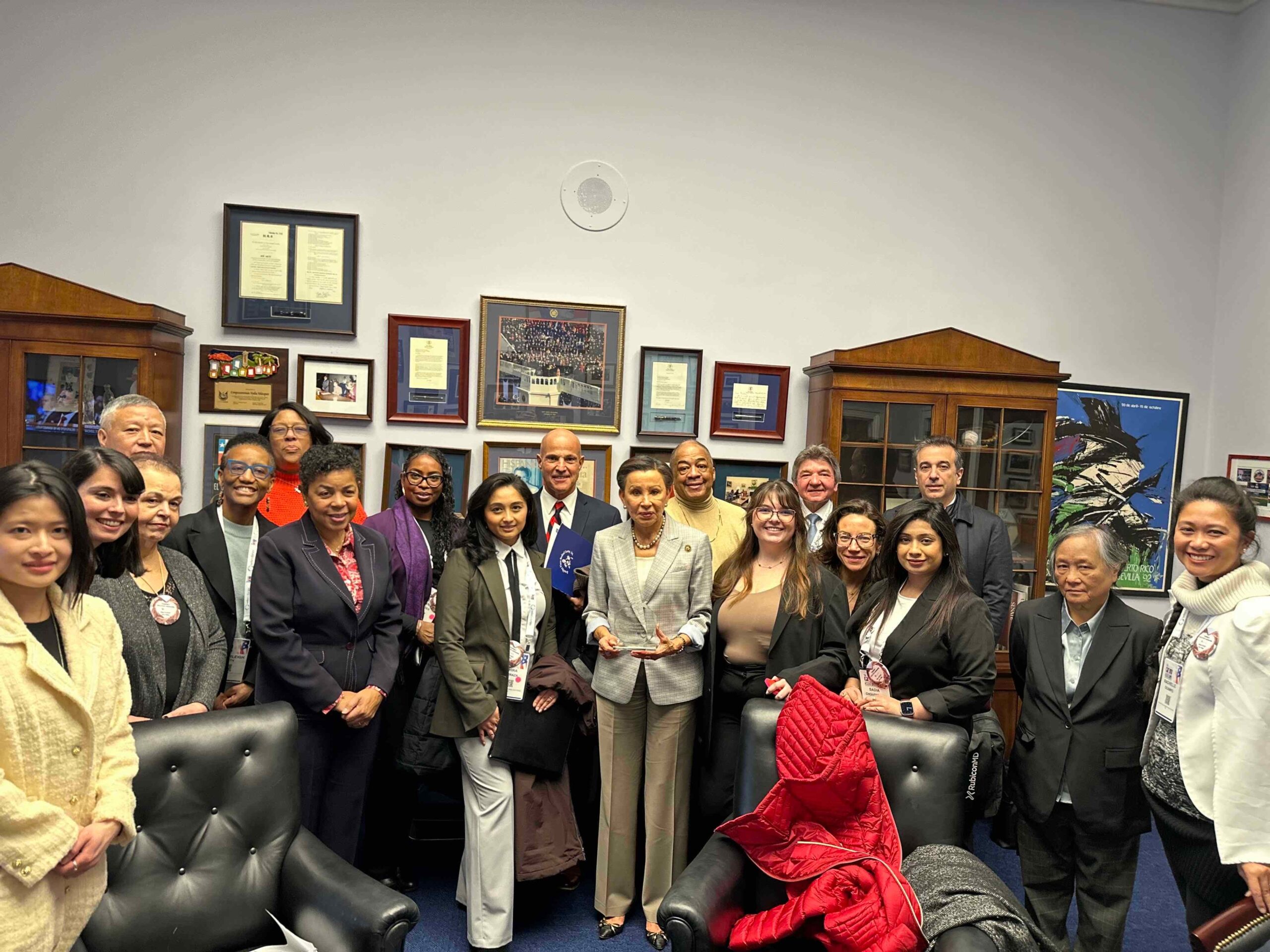

And we really want to lead those charges right now, where at the federal level and at the city level and at the state level, there are a lot of conversations about how to deal with homelessness, because homelessness is on the rise, and it’s truly a tragedy that everyone wants to fix. But I think our goal during these times—whether it’s at the federal, city, or state level—is showing that there are evidence-based solutions that providers have been working on for years. And it’s organizations like CFH that need to be in those conversations, to make sure that we’re pushing solutions that won’t further traumatize our populations and extend their cycles of homelessness. We want to end their cycles, and we know how to do that.
And so that’s our goal when we walk into these meetings—whether we’re talking about Medicaid, Community Health Centers, the Homeless Protection Act—our voice is really just centering people experiencing homelessness in all these policy conversations, because they have so much to add to these conversations. And that’s really my job: to center them.
What would you suggest people do who are concerned about these cuts?
I would say if you are interested in taking action for Medicaid and Community Health Centers…one way to keep track of what we are doing at Care For the Homeless is subscribing to our Policy Matters newsletter. We always have calls to action. It comes out once a month. This month, we’re featuring stopping Medicaid cuts at the federal level. Medicaid cuts would have such a detrimental impact on our communities, and those are the sort of calls to action that we like to center in this newsletter.
Along with that, of course, follow, our social media accounts, where we try to make sure any calls to action that would have impacts on our communities are at the forefront of our social media campaign. So I would say: follow us on social media and sign up for our Policy Matters newsletter.
What further support, beyond what you already talked about, do you think is needed for homeless New Yorkers?
I think all of us need to do a better job at listening to people who have lived experience. At our organization, it is a focus, and we try in any spaces we’re in to put them at the forefront. But I think when we read a news article about an unhoused person who’s suffering a mental health crisis, we need to always look through these trauma-informed lenses and ask, “What is this person experiencing?”
When we’re talking about policies and how to address homelessness, look at where that information is coming from: Who is it being informed by? And listen to the people who have lived experience. They are the only individuals who truly know what folks who are living unhoused need. They are the solution to how we end homelessness, and we need to listen to them and center them in every policy discussion.
Anytime you read a newspaper that is telling you something about the unhoused population, I urge you to kind of look deeper into what’s actually going on; are these stories being informed properly, or are they further stigmatizing a population that really just needs help and resources to regain stabilization?
Because no one wants to be homeless. No one chooses to be homeless. There are solutions, and homelessness is ultimately a policy choice, and it is our job as advocates to push against that and start making policy decisions that will end homelessness.
Finally, anything else you want to add?
No, I don’t think so. I think I nailed it.



If you would like to support our work, please consider making a donation to help us continue providing vital care and services to those in need.


